George McGovern and Robert Hass
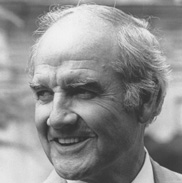
A discussion with George McGovern about ending the modern blight of hunger. The lecture will be moderated by Robert Hass. For the last quarter-century, no person has ranked higher in liberal causes and no person has been so identified with Democratic Party principles than has Senator George McGovern. From the farmland to the Oval Office, McGovern has brought new direction to many issues in American politics. Robert Hass has changed what it means to be Poet Laureate of the United States (95/97). He’s made the Office of Poetry and Literature a position from which to launch action. Armed with the mantra, “Imagination makes communities,” Hass has spent two years battling American illiteracy.
Richard Leakey
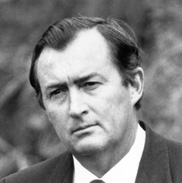
Richard Leakey is a man of principle and purpose who has made international headlines for over 30 years. Serving his native country of Kenya as a senior government official, a member of parliament, an opposition political activist, a conservationist, an administrator, a museum director, a scientific researcher, an author and a farmer, Leakey has been both successful and controversial. The son of the famous Dr. Louis B. and Mary Leakey, he is also the world’s best-known paleoanthropologist, credited with some of the most significant fossil discoveries of the 20th century.
Uncompromising in his crusade against government corruption and unwavering in his devotion to his country, Leakey, a lifelong critic of the mismanagement of Kenya’s wildlife, was appointed Director of Kenya Wildlife Services (KWS) in 1989, where he led the effort to end elephant poaching in Africa. He drew international support for a ban on the trade in ivory and raised $150 million for wildlife conservation. However, his tenure was interrupted when his plane crashed in 1993 claiming both of his legs. The following year, Leakey resigned his post, declaring that government corruption had undermined KWS.
Bruce Mau
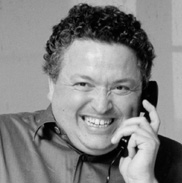
Bruce Mau will present his new ideas about defining and understanding the objects we create and the context in which we create them. Using his own interdisciplinary design practice as a springboard for discussion, Bruce will talk about his methods for working in collaboration with architects, artists, writers, designers, musicians, photographers, philosophers, editors, and curators.
Salman Rushdie
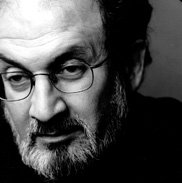
Salman Rushdie is among the few most highly acclaimed writers of our time. His books include Grimus, Midnight’s Children, Shame, Haroun and the Sea of Stories, The Moor’s Last Sigh, The Ground Beneath Her Feet, the highly controversial work, The Satanic Verses, and his recent novel, Fury. In this conversation he will offer some initial observations, then respond to questions first from a panel of discussants and then from the audience. The conversation will address how the world has changed since September 11 but will be in a larger sense literary, focusing on Mr. Rushdie’s writing and on that of others.
David McCullough
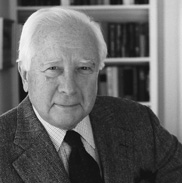
David McCullough, whose biography John Adams hit the New York Times bestsellers list at number one, has been called a “master of the art of narrative history.” His books have been praised for their exceptional narrative sweep, their scholarship and insight into American life, and their literary distinction. In the words of the citation accompanying his honorary degree from Yale, “As an historian, he paints with words, giving us pictures of the American people that live, breath, and above all, confront the fundamental issues of courage, achievement, and moral character.” Mr. McCullough about First Principles: “With change accelerating all around, more and more we need greater understanding and appreciation of those principles upon which the Republic was founded.”
Barry Diller
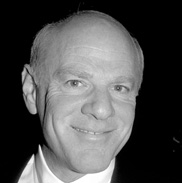
Watching TV? Seen any movies? Chances are pretty good that you’re seeing a program that’s been built under the corporate direction of Barry Diller. Diller is the newly appointed Chairman and CEO of Universal Entertainment Group, a part of the French media company, Vivendi Universal. In this new position Mr. Diller will be responsible for Universal’s studio, film and television operations and its’ theme parks. The position is new, but entertainment and Hollywood as a whole isn’t new to Diller. Born in San Francisco, and raised in Beverly Hills Barry Diller has been a prominent industry figure since 1983. His resume reads more like a TV Guide…Fox, Home Shopping Network, USA Network, SCI FI Channel and dozens of other media, film and entertainment companies line the pages. On Thursday February 21 Mr. Diller shares his vision with us.
Susan Taylor

Susan L. Taylor is editorial director of Essence magazine. Taylor is the driving force behind one of the most celebrated Black-owned business success stories of the past three decades. She directs all editorial operations of the magazine and writes the popular In the Spirit column each month. In addition, Taylor oversees the content of all divisions of the multimedia company. She also works with both the chairman and president to develop new businesses and expand the company’s global reach.
Thomas Krens
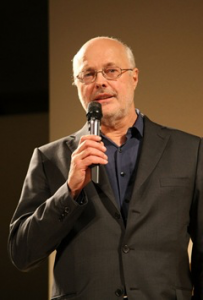
Thomas Krens is reinventing the museum. One look at a recent exhibition will prove it: The Art Of The Motorcycle. Motorcycles? In Museums? Yes. Since joining the Guggenheim Foundation as their director, Krens has been building brave new museums while eschewing the common perception of what a museum is, and what a museum can be. Krens has developed the Guggenheim into a world wide phenomenon with museums in Venice, Berlin, Bilbao Spain, and the newest in Las Vegas. Dr. Thomas Krens is an exciting, spontaneous speaker whose lectures and ideas appeal to anyone who has an appreciation for art.
Juan Williams
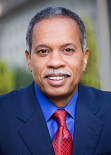
Juan Williams, one of America’s leading political writers and thinkers, is the author of the critically acclaimed biography: Thurgood Marshall – American Revolutionary. He is also the author of the nonfiction bestseller Eyes on the Prize: America’s Civil Rights Years, 1954-1965, companion volume to the critically praised PBS series. After a 23-year career as a columnist, editorial writer, and White House correspondent for The Washington Post, Williams recently became a Senior Correspondent for NPR News after spending 18 highly successful months as the host of National Public Radio’s Talk of the Nation.
Dr. Steven Pinker
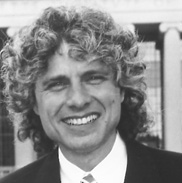
Author of the acclaimed best-seller How the Mind Works, Dr. Pinker is the Peter de Florez Professor in the Department of Brain and Cognitive Sciences at MIT, where he has received awards for his graduate and undergraduate teaching. He was among Newsweek’s “100 Americans for the Next Century,” and is author of the previous bestseller, The Language of Instinct. In addition to his many scholarly publications, he writes frequently in the popular press, including the New York Times, and The New Yorker. He was a scientific advisor for the NOVA series on Evolution, and is on the usage panel for the American Heritage Dictionary. Dr. Pinker is one of the world’s leading cognitive scientists, and is renowned for his engaging and thought-provoking lectures.
Sen. George J. Mitchell
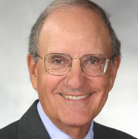
Pan Am 103 and Our World 25 Years Later
This lecture is part of the University’s Commemoration of the 25th Anniversary of Pan Am Flight 103
Sen. George J. Mitchell returns to Syracuse University to discuss prospects for global peace and how (or if) the world has changed in the 25 years since the bombing of Pan Am 103. A highly respected senator, he became Senate Majority Leader on Jan. 3, 1989, two weeks after the Pan Am 103 tragedy. He has also been a special envoy for Middle East peace (2009-11) and for peace in Northern Ireland. In early October 2001, less than a month after 9/11, Mitchell opened The University Lectures series by calmly and honestly addressing the September 11th terrorist attacks during his lecture.
Mitchell was appointed to the United States Senate in 1980 from Maine to complete the unexpired term of Sen. Edmund S. Muskie. He was elected to a full term in the Senate in 1982, and went on to an illustrious career in the Senate spanning 15 years. In 1988, he was re-elected with 81 percent of the vote, the largest margin in Maine history.
Within his Senate tenure, during which time he garnered bipartisan respect, Mitchell served on the Finance, Veterans Affairs and Environment and Public Works Committees. He led the successful 1990 reauthorization of the Clean Air Act and was the author of the first national oil spill prevention and clean-up law. Mitchell led the Senate to passage of the nation’s first child care bill and was principal author of the low-income housing tax credit program. He was instrumental in the passage of the Americans with Disabilities Act. Mitchell’s efforts led to the passage of a higher education bill that expanded opportunities for millions of Americans. He was a leader in opening markets to trade and led the Senate to ratification of the North American Free Trade Agreement and creation of the World Trade Organization.
He left the Senate in 1995 and served as a special advisor to President Clinton on Ireland. From 1996 to 2000 he served as the Independent Chairman of the Northern Ireland Peace Talks. Under his leadership the Good Friday Agreement, an historic accord ending decades of conflict, was agreed to by the governments of Ireland and the United Kingdom and the political parties of Northern Ireland. For his service in Northern Ireland Mitchell received numerous awards and honors, including the Presidential Medal of Freedom, the highest civilian honor given by the U.S. Government; the Philadelphia Liberty Medal; the Truman Institute Peace Prize and the United Nations (UNESCO) Peace Prize.
In 2000 and 2001, Mitchell served as chairman of an International Fact-Finding Committee on violence in the Middle East. The Committee’s recommendation, widely known as The Mitchell Report, was endorsed by the Bush Administration, the European Union and by many other governments.
In 2006 and 2007, he led the investigation into the use of performance enhancing drugs in Major League Baseball. He also served as chairman of the Special Commission investigating allegations of impropriety in the bidding process for the Olympic Games; and was the independent overseer of the American Red Cross Liberty Fund, which provided relief for September 11 attack victims and their families.
In 2008, TIME magazine named Mitchell one of the 100 most influential persons in the world. The George J. Mitchell Scholarship is given annually by the U.S.-Ireland Alliance to 12 Americans ages 18-30 to fund one year or graduate study in Ireland. The scholarship is one of the most selective in the United States.